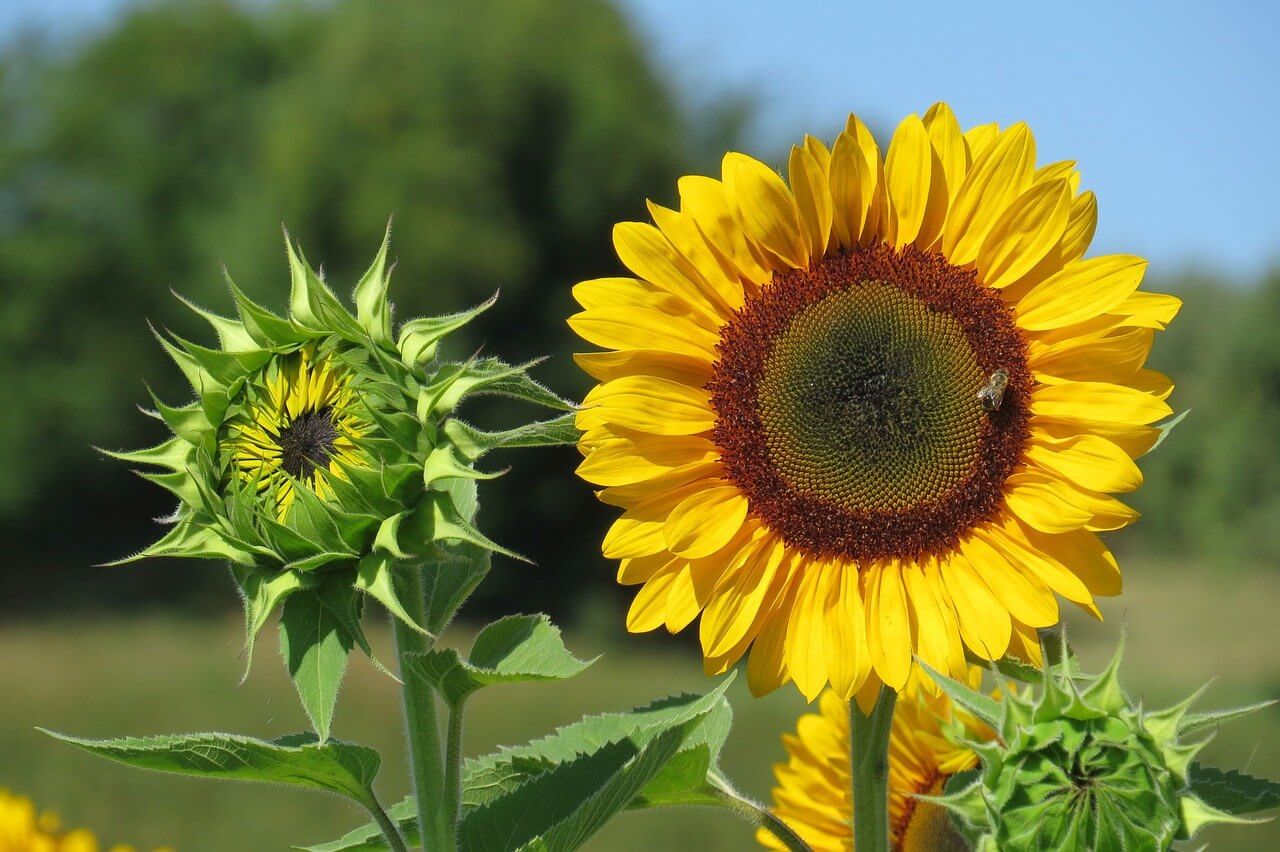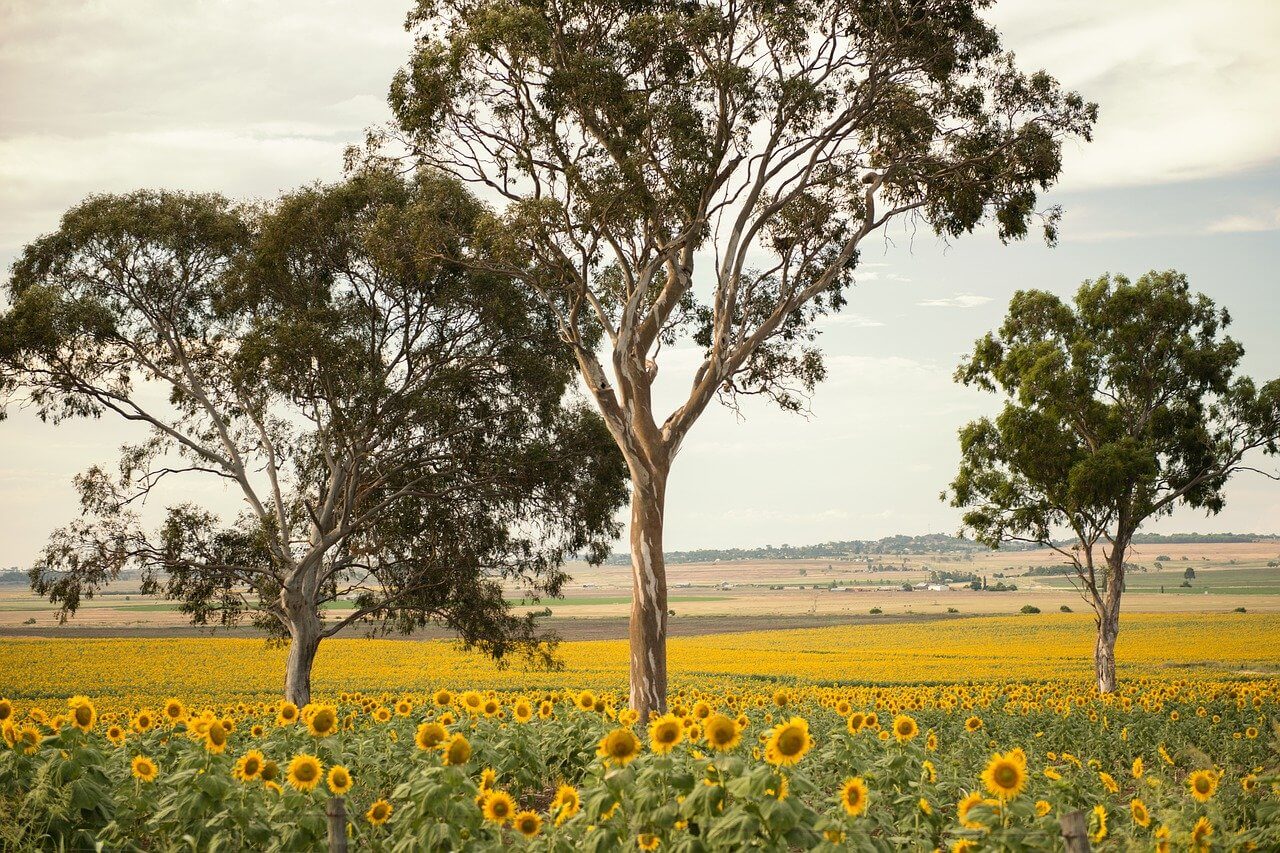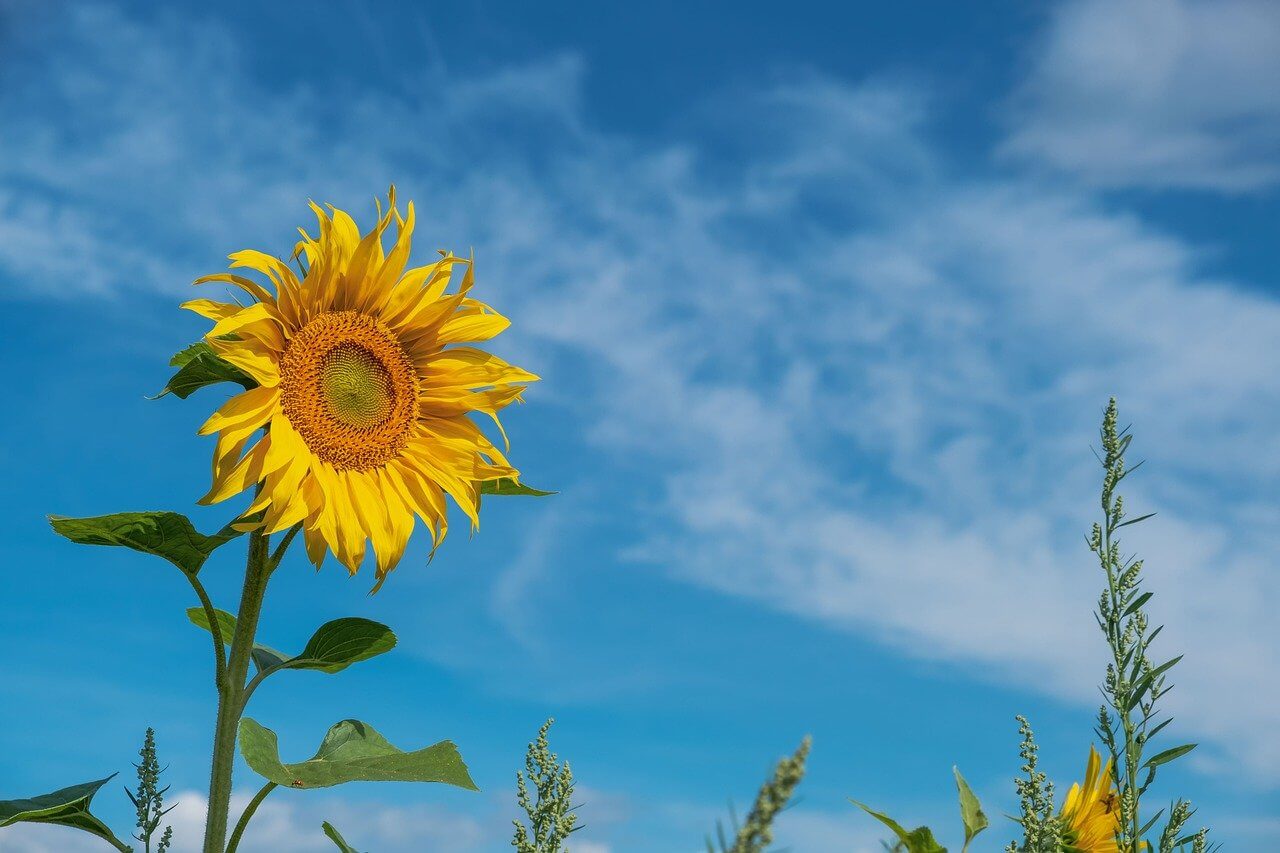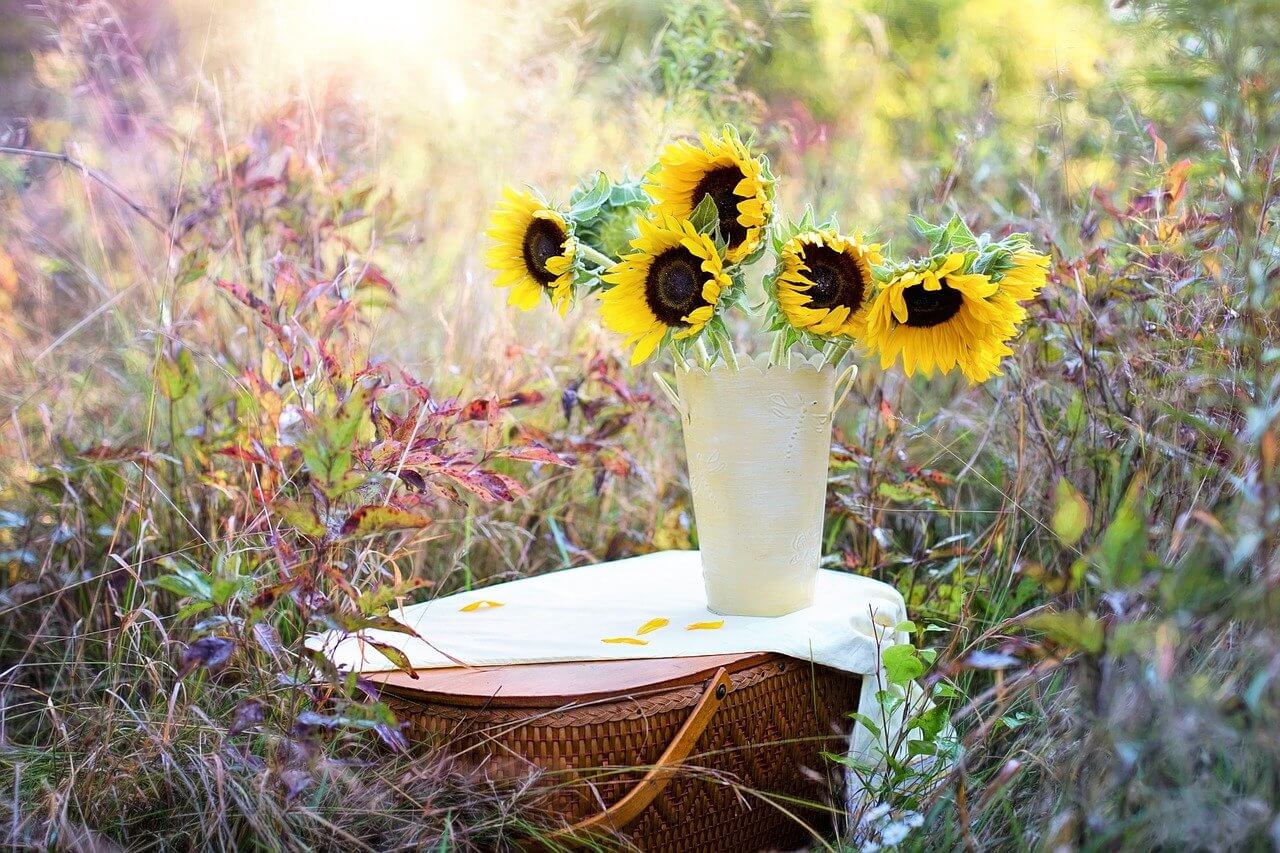Sunflowers are a very forgiving plant, but like all plants they will benefit from being planted at the right time and in the right conditions, for the best results. Sunflowers are generally a summer plant, as you can tell by the name – they follow the sun, and turn to face it as it moves – and they need a good, long, warm growing season to be able to produce those beautiful blooms. So when should you plant sunflowers?
What You'll Learn Today
How Late Can You Plant Sunflowers

It is best to plant sunflowers in Spring, or early summer, to get your beautiful crop around the middle of summer to autumn. You can, however, plant sunflowers later than this if you live in a warm climate. There are also some varieties that you can grow in a pot, which usually extend the time for planting.
You can also plant sunflowers as late as August, to get a second round of flowers, provided your area is warm enough. These pretty blooms won’t withstand frost, so ensure that you keep them as warm as you can.
Sunflowers need up to 100 days of warm growing season from when they are planted to when they will flower, so use this as your guide to work out when to plant them, and how late you can get away with.
This little video talks about the best times to plant sunflowers, as well as a few other interesting sunflower facts:
How Far Apart Do You Plant Sunflowers
There are a few different types of sunflowers, and all will have different growing requirements. The larger ones, obviously, will need more space, while the smaller ones can afford to be a little more snug.
Large, annual sunflowers will need up to two feet of room in between each plant, while the smaller ones, which tend to be perennials, can be happy with around 8 inches (c 20cm) between them.
It is always a good idea to err on the side of giving your plants more room than less, because they can damage each other if they bump into each other, and sometimes even the summer produces storms and strong winds.
What To Plant With Sunflowers

Companion planting is not only great fun, but it can also benefit your plants. Although not always backed up by science, gardeners the world over swear by companion planting, and can give you lists of what to plant with your sunflowers!
Sunflowers can actually inhibit the growth of certain other plants. This is because the plants will all fight over the same types of nutrients in the soil. Wherever possible you should avoid planting your sunflowers with these plants.
Sunflowers grow harmoniously with other plants, however, so you should have a look into these as they may help your sunflowers thrive – or at least they can grow together peacefully.
- Tomatoes
- Sweetcorn
- Cucumbers
- Peppers
These plants all grow very well with sunflowers, and won’t compete for space or nutrients. Also, planting smaller plants alongside the tall sunflowers can maximize the space you have available.
The list of things to NOT grow with your sunflowers is shorter, but also needs to be considered, as growing the following with your sunflowers may inhibit their growth:
- Sunflowers tend to shade the earth beneath them, and can suck up nutrients from deep down below the soil, meaning that potatoes are not their favorite companions.
- The types of beans that climb are not ideal to plant with sunflowers, as they may try to climb the stems and choke the plant.
Where To Plant Sunflowers In Yard

Sunflowers like a good sunny position, where they will receive 6-8 hours of sunlight a day. Choose a nice south facing wall, and make sure they will not be shaded by anything. You can always trim back excessive foliage from other plants.
The soil should be freely draining, but you don’t have to worry too much about feeding them tons of nutrients – sunflowers can survive in relatively poor soil. As long as the soil doesn’t get waterlogged you should have happy sunflowers!
Final Words

Sunflowers are a beautiful, cheering sight to have in your garden, whichever type you decide to grow. As long as they get plenty of sun they should reward you with cheery blooms for months to come. Here’s also my recent post on preserving sunflowers for various purposes.